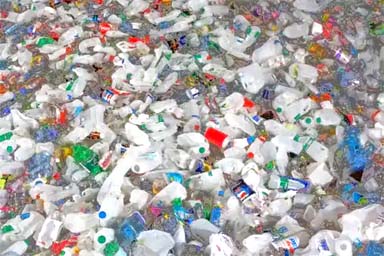DE Online Desk:
Many of us try our best to reduce our plastic consumption.
But despite our best efforts, figures suggest that a whopping 220 million tonnes of plastic waste are set to be generated this year.
Now, a study has revealed the popular brands responsible for the vast majority of branded plastic pollution in the world.
The Coca-Cola Company tops the list as the number one polluter, and is responsible for 11 per cent of all branded waste, according to researchers from Dalhousie University.
‘This global branded plastic pollution data speaks for itself and demonstrates unequivocally that the world’s top global producers are the biggest plastics polluters,’ said Dr Tony Walker, co-author of the study.
- Advertisement -
In their study, the researchers set out to understand whether or not there is a link between plastic production and plastic pollution.
The team analysed five years of data from 1,576 audit events across 84 countries.
These brand audits are citizen science initiatives, in which volunteers conduct waste cleanups and document the brands collected.
Their analysis revealed a ‘clear link’ between plastic production and pollution.
In fact, they found a one per cent increase in plastic production resulted in a one per cent increase in pollution.
In terms of specific brands, the researchers found that 56 global companies are responsible for more than 50 per cent of all branded plastic pollution.
The top five producers were The Coca-Cola Company (11 per cent), PepsiCo (five per cent), Nestle (three per cent), Danone (three per cent), and Altria/Philip Morris International (two per cent).
However, more than half of the recovered plastic items were unbranded, which makes the accountable companies difficult to track down.
- Advertisement -
To prevent this issue in the future, the researchers suggest creating an international, open-access database into which companies are obliged to track and report their products, packaging and brands to the environment.
Overall, the researchers say that the key to curbing plastic pollution is reducing the production of single-use plastic goods.
‘When I first saw the relationship between production and pollution, I was shocked,’ said Win Cowger of the Moore Institute for Plastic Pollution Research.
- Advertisement -
‘Despite all the things big brands say they are doing, we see no positive impact from their efforts.
‘But on the other hand, it gives me hope, that reducing plastic production by fast-moving consumer goods companies will have a strong positive impact on the environment.’
A spokesperson at Coca-Cola Great Britain said: ‘We care about the impact of every drink we sell and we’re working to reduce the amount of plastic packaging we use.
‘We have an ambitious goal to collect and recycle a bottle or can for each one we sell by 2030.
‘In addition, we support well-designed Deposit Return Schemes across Europe which we know can help us get our packaging back.’
A Nestle spokesperson added: ‘Plastic pollution is a serious issue and one that we are working hard to help address.
‘We have reduced in the last five years our new (virgin) plastic usage by 14.9%.
‘At Nestlé, we have more than 220 initiatives to develop well-functioning waste collection, sorting and recycling schemes in Europe, Africa, Asia, North America and Latin America. We will continue to pursue this work to keep packaging materials in the circular economy and out of the environment.’
A Pepsi spokesperson said: ‘We have made significant investments for more than a decade aiming to reduce the packaging we use, scale reusable models, and partner to further develop collection and recycling systems. Progress is ongoing, however, building a stronger circular economy is complex and requires collaboration.
‘As a member of the Business Coalition for a Global Plastic Treaty, we advocate for an ambitious and binding global policy framework to help address plastic pollution and we urge others to seize the opportunity to do the same.’
A Danone spokesperson added: ‘Throughout the global Danone family of companies, we strongly support efforts to reduce plastic waste by accelerating recycling and reuse. We continue to strive to reduce our own plastic footprint – between 2018-2023 we reduced our plastic use by 8% equivalent to 62 000 tons and increased the recyclability of our packaging (84% of our packaging is recyclable, reusable or compostable). We continue to support and push for improved collection and recycling infrastructures to help consumers recycle.
‘However, there are systemic barriers to overcome to reduce plastic waste, such as underdeveloped reuse, collection and recycling infrastructures and the scarcity of recycled materials. This is why Danone has been advocating for an ambitious and binding UN Global Plastic Treaty which would represent a major opportunity to unlock and accelerate progress on plastics circularity.’ — Mail Online








